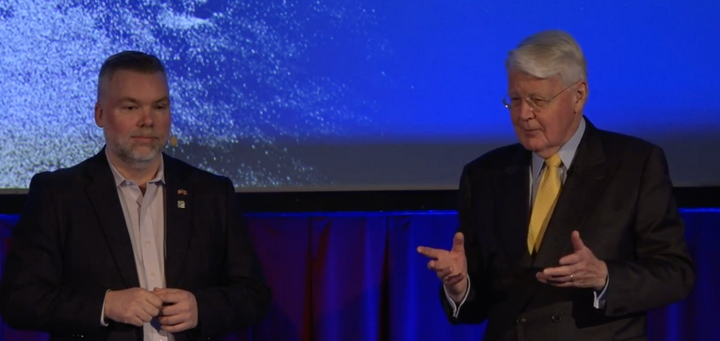NSA as a fund of funds, pros and cons & the big picture

This post is from the Northstack Memo, our newsletter and commentary on recent happenings in the Icelandic startup ecosystem, written by @kiddiarni.
NSA Ventures as a fund of funds
Last week I wrote about the upcoming changes at NSA Ventures. Since then, the Minister for Innovation announced the working group tasked with proposing the changes.
For some time, the idea of NSA Ventures becoming a fund of funds has been discussed, both in public and private. The Ministry of Innovation made a point of it in its action plan Frumkvæði og Framfarir (e. Entrepreneurship and progress) – point 1.4 to be exact:
- 1.4 NSA Ventures will focus on investing in funds.In the coming years, NSA Ventures will focus on investing in private equity funds (í. samlagssjóðum) alongside other institutional investors. With this action it’s possible to increase investment in innovation in the early stages of commercial activity and at the same time lower the operational costs of NSA Ventures. (translation is mine)
This echoed in speeches at NSA Ventures’ annual meeting. Individuals have discussed this as well. Most recently, Helga Valfells, former CEO of NSA Ventures and co-founder of Crowberry Capital suggested this in a panel at the Technology Development Fund’s annual meeting (where I was a panelist alongside her).
What is a fund of funds?
A “fund of funds” (FOF) is an investment strategy of holding a portfolio of other investment funds rather than investing directly in stocks, bonds or other securities. This type of investing is often referred to as multi-manager investment. (wikipedia)
NSA Ventures as a fund of funds would invest in investment managers or GP’s that then invest in companies. NSA would become an LP and have a role like the pension funds when it comes to investments. Instead of sitting on the board of individual startups, the fund would outsource those operations to GP’s. That would require fewer staff – maybe only a CEO?
A fund of funds is not a stockpicker (or startup-picker, in the case of NSA), but an investor picker. NSA’s investments in companies would be in the hands of (most likely) private investors. Those would not only invest NSA’s money, but the money of other LP’s (we recently looked at Icelandic LP’s here), and their own. In fact – NSA is already an investor in three funds. Frumtak 1, which invested in companies like DataMarket and Meniga. Auður I, which started as a startup investor but ended up as a classic private equity player, and Brú II, a fund operated by Thule Investments.
This kind of change would mean that the fund’s staff would need new skills. Assessing investors is a different job from assessing startups. There’s definitely some overlap, but you’re looking at different things when you’re picking an investor than when you’re picking an individual company.
Pros and cons of this structure
The possible highlights of NSA Ventures operating as a fund-of-funds are several.
It would help regulate the major swings we’ve seen in access to capital. Over the last couple of decades, access to early stage capital has been very volatile. For the last two years there’s been a lot of available funds. The years before that were dry. These excessive swings mean that we don’t have regular dealflow and our VC industry doesn’t develop in a normal sense. And we sometimes forget that our VC industry is also a startup in its sense. The funds need time for successes and failures and to build up connections and rapport.
It would mean that direct investment decisions were made by people with skin in the game. The government would be one step away from direct investment in companies. In most VC funds, the General Partners (the people making investment decisions) have their own money invested in the fund. On top of that, they’re compensated with carried interest – a bonus based on the performance of their investments. This means that the outcome of investments has a direct monetary impact on the GP’s, something that’s not a part of the equation when government employees make those kinds of decisions. The government is already handing out money to startups through initiatives and processes without skin in the game (TDF the most relevant example), and there’s no specific reason for many such initiatives.
NSA could compare the outcomes of the VC funds. If NSA were an active investor in VC funds, it would likely be a partner in most of the active funds in Iceland. That would give it access to data, and a specialisation in evaluating VC funds and investors. I doubt that Icelandic LP’s (mostly pension funds) have the resources or interest to create that kinds of specialisation. Remember that their share in the Icelnadic VC funds is a drop in the sea when compared to their total assets. NSA could become a vetting mechanism of sorts.
That last point is also something that could become the fund’s drawbacks. Iceland is small and various positions can become politicized or clique-y. If NSA Ventures would become a stamp of approval for venture capitalists, nepotism and politics could get mixed into it. Especially when you look at the strange set-up of how the board is picked (the Icelandic Confederation of Labor gets to pick one board member, just because). Any changes in the direction of Fund of Funds should include some much needed governance changes.
Other cons that I think of (and please, send me a message with your thoughts on this) are ideology and opportunity costs.
Ideology, in the sense that changing how the fund operates doesn’t “start with why“. It’s not taking a step back and discussing whether the government should take part in the venture capital and startup funding environment alltogether.
Opportunity costs in the sense that we could miss out on other ways of utilising the government’s will to take part at this funding stage. We could do something completely different. For example a matching scheme, where government matches individual investors who invest in startups. Or a tax break scheme for angel investors like the EIS. The working group’s task is to look at alternatives, and I trust they will look at many and evaluate.
Remember the big picture
The topic of this post is NSA Ventures and the future of the fund. (off topic: I think it’s the longest Memo I’ve ever written. Feedback on the length appreciated!)
It’s important to remember two important points when analysing this.
First, NSA Ventures don’t have money to invest. The biggest part of their AUM is in equity stakes in startup companies. The fund will need to exit those to have cash available to invest in new venture funds. Granted, NSA could promise participation in a new fund without the cash on hand on the hope that they would exit enough to pay up when the time would come, but that doesn’t sound like a sound business plan.
Their portfolio consists of 29 companies. To be able to reinvest in a fund, NSA would need to exit a big part of the companies. That’ll be hard – Iceland doesn’t have an active secondary market for tech companies. The average time since NSA invested in a company is around nine years – which is the typical lifespan of a VC fund. But, NSA Ventures is a governmental institution, and the government has deep pockets, right?
The government has twice put in money; first the 3bn ISK at the beginning, and more recently 1.5bn ISK after the sale of Síminn. There’s always the possibility they would add more money. However, if you look at the financial plan for 2018-2022, there’s no real increase in this policy area. Item 7, Innovation, research and knowledge industries are 14bn per year (the same as in 2017). NSA and the Technology Development Fund are part of item 7 in the financial plan. (Please correct me if I’m misunderstanding).
That brings us to the second point. The future of NSA Ventures should be analysed in the big picture. NSA Ventures is one of many initiatives by the government to increase startup activity, new venture formation, innovation and commercialisation of technologies. It should be thought of as that – one of many – and its future discussed in that capacity.
Where does NSA Ventures fit in now that the Technology Development Fund is handing out grants of up to $70,000? How do the newly passed laws affect the funding cycle and availability of early stage funds? The TDF has 2.3bn ISK ($23m) per year to hand out to innovative projects. should all that be in the same institution, or could part of it be better utilised in some other scheme? How important is it for us to get foreign investors to the table, and should NSA Ventures be a key player in making that happen?
What do you think?
Note: the post has been corrected based on feedback. It previously said that “NSA Ventures values its shares at the price they got when entering the company” which true in some cases wasn’t fully representing reality. NSA does ongoing valuations and their AUM number is conservative (based on their feedback.) Sorry about that.




